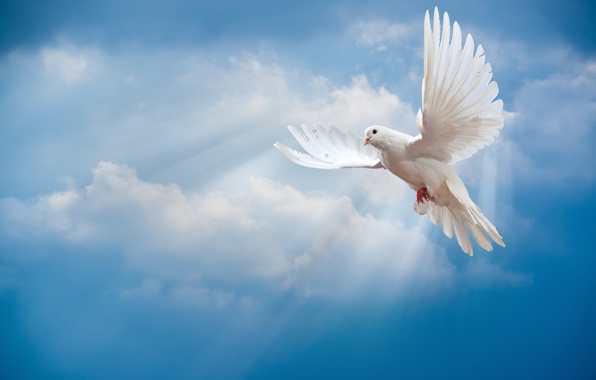May 6, 2013
John 14: 23-29
We would not be here today, if we did not believe that we have a relationship with God. But there has been a significant amount of theological discussion over the centuries on how this relationship functions, especially when it comes to getting things done. When some good thing needs to happen in our world or when some evil thing needs to be stopped the question is, “Whose responsibility is it to act: God or ours?”
Now certainly God has more power to act. We believe in a God who is involved in our lives and in human history, shaping the course of human events, changing hearts, and bringing hope where there was only despair. This God can act much more powerfully than we can. So when we hear the words of Jesus in today’s Gospel, “Peace I leave you, my peace I give you,” our first response might be to sit back and wait. Since Jesus has promised peace, we can suppose that Jesus will establish peace. So we respond, “Good, thank you, bring it on! Give us peace!”
But we also know that in other places in the gospels Jesus calls us to be peacemakers. In the beatitudes he says, “Blessed are the peacemakers, for they shall be called children of God.” So who is expected to make peace—Jesus or us? Obviously when you look at the entirety of the scriptures, it becomes clear that Jesus does not intend to give peace by himself. The achievement of peace is something in which he calls us to participate. We are in a partnership with God, called to bring about peace into our world.
Certainly our world needs peace. A recent research document verified that there has not been a single day since World War II in which there was peace in the world—not a single day without some kind of armed conflict happening in some place. Today there is violence in Syria, in Iraq, and in so many parts of Africa. In all of these places what we find is not peace but violence. Therefore, it is easy to conclude—and indeed many have—that peace will never come to this world. This view would ask us to prepare ourselves for day after day of war.
Yet Jesus promises to give us peace. Is his promise realistic? Only if we realize that his peace is not a gift, but a project that we will work on together. It is very important to understand what this partnership entails. It is not an equal arrangement. As I said, God has much more power than we do. How then should we divide up the work? There are so many places in our world where efforts to achieve peace are beyond our control. There we must leave peacemaking to God. When, however, we discover areas of violence under our own influence, it is then that we must act. We might not be able to stop violence or war in Syria or give comfort to the thousands of refugees in camps around the world, but we can choose to refrain from violent language in our home, to instill understanding and patience at work or at school, to forgive someone who has hurt us. These are our actions of peacemaking. They may seem very small compared to the large efforts towards world peace. But we are in a partnership. God does the big things, and we contribute what we can by our actions against violence. So we should never undermine or negate the small efforts that we can offer. We should believe that God will use our small efforts at peacemaking as a part of his larger plan to save the world.
I believe that the day will come when there will be world peace. When that day arrives, it will certainly be God’s work. But we are God’s partners. That is why we must become peacemakers today.

